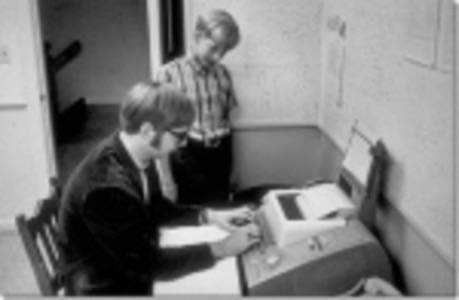Last week, we looked at some of the reasons why – despite the prevailing sentiment in the startup community – it may be preferable (and is actually pretty common) to be a single-person founder. But if you are a single-person founder and are skeptical that you can go it alone, how do you look for a co-founder?

Adding a co-founder may seem like a simple way to share the workload of starting a new business. But the key to being successful isn’t as easy as simply adding another person to your list of founders. You have to find the right co-founder. And finding the right co-founder, as many entrepreneurs find, is not easy.
But here are some things to consider:
What are you looking for?
Skills: In a recent post on his blog Learn to Duck, Graphic.ly CEO Micah Baldwin identified the perfect pair for startup founders: the Hacker and the Hustler.
In other words, one co-founder — the hustler — should have strong networking and relationship skills and should be able to both articulate to and ignite in others a passion for the business. The other person — the hacker — should be the problem-solver. As Baldwin notes, the hacker is “more than a code monkey” — “A Hacker is someone who looks the problem, and solves it in a unique and special way. A Hacker finds the process of problem solving exciting and interesting, and spends the majority of their time looking at the problem in multiple ways, finding many potential solutions”
Regardless of whether you’re a hacker looking for a hustler or a hustler looking for a hacker, you do need to know enough about the other so that you can make smart inquiries. As Naval Ravikant advises on Venture Hacks, “Business founders who don’t code use bad proxies for picking technical co-founders (“10 years with Java!”). Technical founders who don’t sell also use bad proxies (“Harvard MBA!”). Learn enough of the other side to have an informed opinion. “
Work Styles: In addition to locating a co-founder with complementary skills, you should look for someone who shares your work style. You’ll need to agree on how and when work happens and how decisions are made, for example.
Motives and Vision: It’s also important that your co-founder is compatible with you in terms of vision and motivation. If one founder seeks fame and fortune while the other person really just wants to make cool gadgets, it might not be a good match.
Where can you look?
Ideally, your co-founder will be someone that with whom you already have a relationship. That makes knowledge about some of the aforementioned skills and strengths easier to assess, as well as making it more likely to be able to have a strong sense of trust.
In his guide to finding a co-founder, Neil Patel points to the following sources:
1. Local networking events (you don’t want someone that lives far away from you)
2. Industry events
3. Friends and family
4. College (if you are still in school)
It’s important, no matter the route you take in locating a co-founder, that you establish expectations early. And don’t just settle for the first person who expresses an interest in joining you as a co-founder. If it doesn’t feel right, you shouldn’t commit.
After all, you may still be able to make some progress on your own.





















